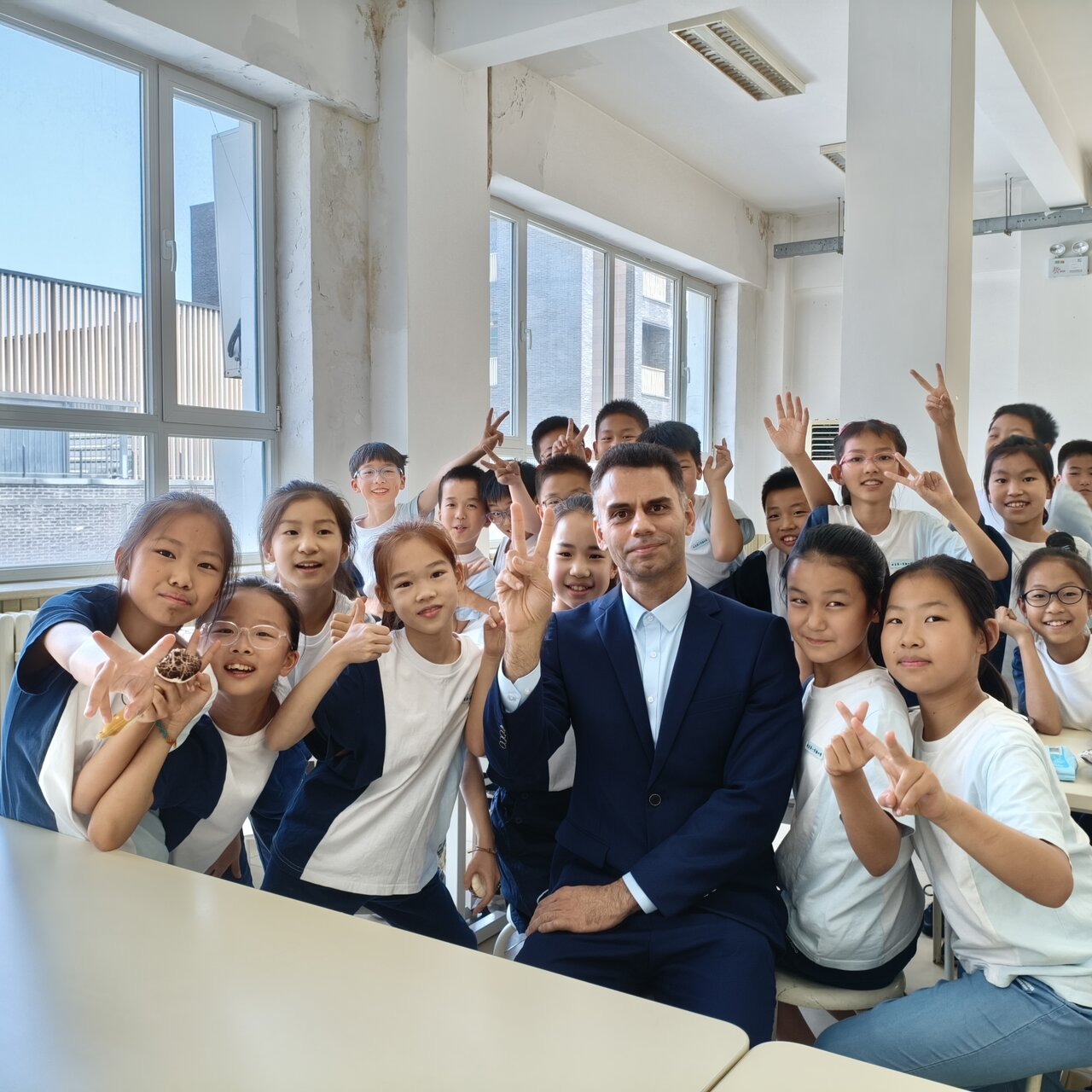Guardians of the Great Wall: Shaping China's future through education

BEIJING- In China, education is more than instruction—it is nation-building. The country’s primary schools are designed not only to teach facts but to shape future citizens: intellectually capable, physically strong, emotionally balanced, and culturally rooted.
This philosophy is not an abstract ideal—it is visible in every corner of schools like Beijing First Experimental Primary School, which I had the opportunity to visit as part of a media exchange program organized by the China International Press Communication Center (CIPCC).
On Tuesday, our group of international journalists—including myself from the Tehran Times—visited this storied institution in Beijing’s Xicheng District. Established in 1912, the school is widely recognized for its forward-thinking approach and educational excellence. But what we encountered was far more than a well-run school—it was a living example of how China is investing in its future through its youngest generation. Our visit began with a warm welcome—not only by school administrators, but also by two 12-year-old students, a boy and a girl, who served as our English-speaking guides. Their fluency, confidence, and command of the school’s history were immediately impressive. These students weren’t just showcasing their language skills; they were demonstrating the success of a system designed to foster global competence grounded in national pride.
The philosophy here is holistic. Students spend around eight hours a day at school—not only immersed in academic subjects, but also engaged in activities that support their physical health, artistic growth, and emotional well-being. We watched as students played basketball, practiced ping pong, and performed traditional Chinese martial arts, all built into the daily schedule. As guests, we joined in these activities, transported back to our own schooldays through laughter and shared movement.
The balance between tradition and modernity was also evident in the school’s music program. In a performance hall, we watched student ensembles play musical instruments with striking coordination and passion. It was clear that music and the arts are not treated as optional, but as essential tools for nurturing discipline, creativity, and collaboration.
What truly moved us, though, was the spirit of the students. During lunch, we sat among them, exchanging stories and ideas. Their curiosity about the world beyond China—and their pride in their school and country—was heartening. Conversations flowed naturally, and in those moments, the importance of cultural exchange became beautifully clear. Underlying all of this is China’s deep belief that education is a cornerstone of societal development.
In discussions with school officials, we learned that China’s educational system is not solely focused on academic success, but on cultivating morally responsible, socially engaged, and globally aware citizens. Respect for elders, love of country, discipline, and a sense of collective purpose are interwoven into every part of school life.
As we left, photos with the students captured our smiles—but the real takeaway was something less tangible: a renewed understanding of how education, when thoughtfully designed and deeply valued, can shape not just individuals, but an entire nation’s future. In that Beijing primary school, we didn’t just observe a day in the life of Chinese students—we witnessed a vision for tomorrow, already taking root today.
Leave a Comment